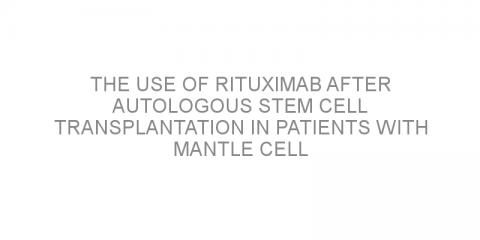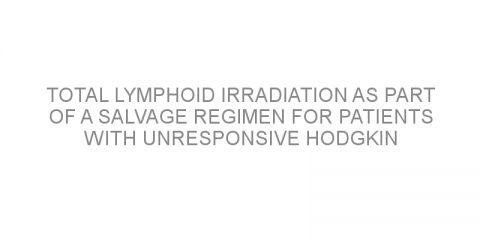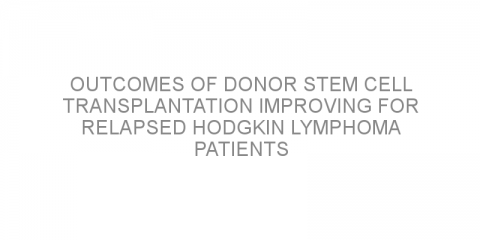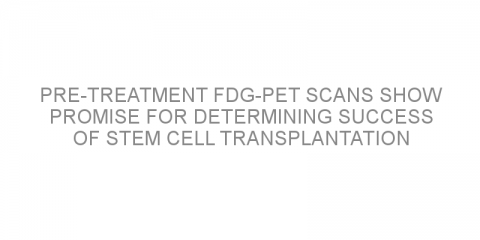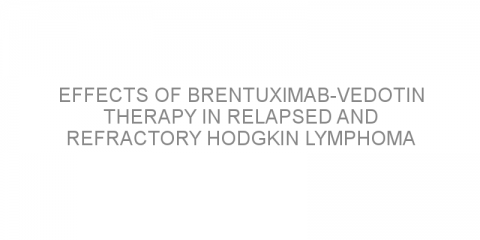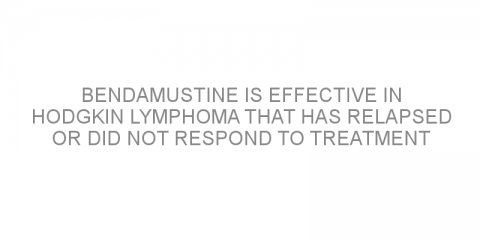In a nutshell The authors looked at the effect of rituximab (Rituxan) treatment after autologous stem cell transplantation in patients with mantle cell lymphoma. The authors concluded that the use of rituximab after autologous stem cell transplantation improves outcomes for patients with mantle cell lymphoma. Some background Mantle cell...
Read MoreCurrent disease status-Recurrent lymphoma Posts on Medivizor
Outcomes for Hodgkin lymphoma patients after receiving an autologous stem cell transplantation
In a nutshell The authors looked at the effect of age on outcomes for Hodgkin lymphoma patients who have undergone autologous stem cell transplantation. The authors concluded older patients tend to have a worse outcome than younger patients, and have a higher risk of developing a secondary cancer. Some background Hodgkin lymphoma (HL) is...
Read MoreUsing white blood cell counts to predict relapse after autologous stem cell transplantation in children and young adults with Hodgkin lymphoma
In a nutshell This study examined the use of lymphocyte and monocyte blood counts to predict the outcome of autologous stem cell (immature blood cell) transplantation in children and young adults. The study concluded that the lymphocyte/monocyte ratio can be used to predict a likely relapse following autologous stem cell transplantation. Some...
Read MoreIs bortezomib combined with rituximab and dexamethasone effective in relapsed-refractory mantle cell lymphoma?
In a nutshell This study examined the effectiveness of the combination bortezomib, rituximab, and dexamethasone (BORID) in patients with relapsed or refractory (did not respond to treatment) mantle cell lymphoma. This study concluded that this combination was effective and tolerable in these heavily pretreated patients. Some background Mantle cell...
Read MoreCBV conditioning and stem cell transplantation is effective in relapsed/refractory childhood lymphoma
In a nutshell This study examined whether the chemotherapy combination CBV was safe and effective before stem cell transplantation in children with relapsed or refractory (did not respond to treatment) non-Hodgkin lymphoma. This study concluded that this option is safe and effective for many patients. Some background Outcomes for childhood...
Read MoreTotal lymphoid irradiation as part of a salvage regimen for patients with unresponsive Hodgkin Lymphoma
In a nutshell The authors looked at the long-term results of total lymphoid irradiation for patients with relapsed or unresponsive Hodgkin lymphoma. The authors concluded that total lymphoid irradiation combined with high-dose chemotherapy is a safe and effective treatment for patients with relapsed or unresponsive Hodgkin lymphoma. Some background...
Read MoreNivolumab as a treatment for relapsed Hodgkin’s lymphoma
In a nutshell The authors examined the safety and effectiveness of nivolumab (Opdivo) in patients with relapsed Hodgkin’s lymphoma after allogenic stem cell transplantation. The authors concluded that this treatment is generally safe and effective. Some background Hodgkin’s lymphoma (HL) is generally considered curable. However,...
Read MoreOutcomes of donor stem cell transplantation improving for relapsed Hodgkin lymphoma patients
In a nutshell This study examined the outcomes of allogenic (donor) stem cell transplantation in two different time periods. The authors found that those treated in the later time period, 2009-2013, had better overall survival and fewer relapses, largely due to improvements in treatment options. Some background Hodgkin lymphoma is widely...
Read MorePre-treatment FDG-PET scans show promise for determining success of stem cell transplantation
In a nutshell This review aimed to determine the accuracy of F-fluoro-2deoxy-D-glucose positron emission tomography (FDG-PET) scans at predicting the success of autologous (using the patient’s own stem cells) stem cell transplant (SCT). This study concluded that an FDG-PET scan before SCT may be of value in predicting the outcome of the SCT...
Read MoreLatest guidelines relating to the treatment of the nodular lymphocyte predominant Hodgkin lymphoma.
In a nutshell This review provided guidelines relating to the treatment of nodular lymphocytic-predominant Hodgkin lymphoma (NLPHL). The authors concluded that appropriate treatment varied by age, disease-stage and the presence of relapse. Some background NLPHL is the rarer form of HL. It is characterized by the presence of atypical white...
Read MoreEffects of brentuximab-vedotin therapy in relapsed and refractory Hodgkin lymphoma
In a nutshell This study evaluated the effectiveness of brentuximab-vedotin therapy in relapsed- and refractory Hodgkin lymphoma patients. The authors concluded that the treatment was safe and effective. Some background Some Hodgkin lymphoma patients are either unresponsive to treatment (refractory disease), or relapse soon...
Read MoreBendamustine is effective in Hodgkin lymphoma that has relapsed or did not respond to treatment
In a nutshell This trial examined the effectiveness of bendamustine in patients with Hodgkin lymphoma that did not respond to treatment or returned after a period without disease. The authors found that this treatment was effective in this population. Some background About 30% of Hodgkin lymphoma patients will either not respond to treatment...
Read More
